
Like the hero of the film Kes, Greg Hutchings was bitten by the falconry bug as a teenager. “I must have been 12 years old when I climbed a tree to see a sparrowhawk’s nest with five chicks in it. Not long afterwards there was a TV programme about falconry and I was hooked,” he says.
Greg and I are sitting in my kitchen drinking coffee while outside on his block, hooded and raring to go, is Kenzie, Greg’s fifth-season peregrine falcon named after one of Greg’s heroes, the wildlife artist and Lincolnshire wildfowler Mackenzie Thorpe.
I am are struck by Greg’s enthusiasm as he talks about how he bred Kenzie from a wild female that had been handed into a wildlife reserve with a broken wing.
Outside, the wind is shaking the autumn leaves from the sycamores along the shore and we watch anxiously for it to drop. The maximum wind speed Greg will fly his bird in is 25mph — beyond that it struggles to keep position.
English are better
Today’s expedition has been months in the planning. For two years Greg has been putting down grey partridges here in the hope that one day he will see Kenzie hurtle out of the sky and take one. In contrast to the thousands of redlegs released in Dumfries and Galloway, the native bird is all but extinct. Greg’s conservation efforts have been a happy by-product of his falconry. English partridges are better for falconry because redlegs run rather than clamp down to a point.
The partridges that Greg puts down are bantam-reared. He buys them at five weeks and they are then grown on in Greg’s garden on a diet of wild bird seed to accustom them to foraging in the wild. Then, at eight to 10 weeks, they are gradually released from a pen on the edge of a stubble where there is a thick beetle bank of white grass, in such a way that a covey is then hefted on to part of the farm that has the best possible habitat for them.
This story is from the November 13, 2019 edition of Shooting Times & Country.
Start your 7-day Magzter GOLD free trial to access thousands of curated premium stories, and 9,000+ magazines and newspapers.
Already a subscriber ? Sign In
This story is from the November 13, 2019 edition of Shooting Times & Country.
Start your 7-day Magzter GOLD free trial to access thousands of curated premium stories, and 9,000+ magazines and newspapers.
Already a subscriber? Sign In
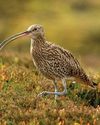
United we stand
Following United Utilities' decision to end grouse shooting on its land, Lindsay Waddell asks what will happen if we ignore our vital moors
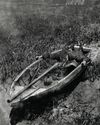
Serious matters
An old gamebook prompts a contemplation on punt-gunning
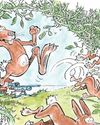
They're not always as easy as they seem
While coneys of the furry variety don't pose a problem for Blue Zulu, he's left frustrated once again by bolting bunnies of the clay sort
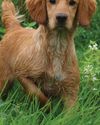
Debutant gundogs
There's lots to think about when it comes to making the decision about when to introduce your dog to shooting
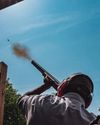
When the going gets rough
Al Gabriel returns to the West London Shooting School to brush up on his rough shooting technique

The Field Guide To British Deer - BDS 60th Anniversary Edition
In this excerpt from the 60th anniversary edition of the BDS's Field Guide To British Deer, Charles Smith-Jones considers the noise they make
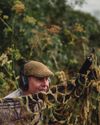
A step too far?
Simon Garnham wonders whether a new dog, a new gun and two different fields in need of protection might have been asking too much for one afternoon's work
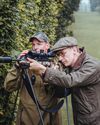
Two bucks before breakfast
A journey from old South London to rural Hertfordshire to stalk muntjac suggests that the two aren't as far detached as they might seem
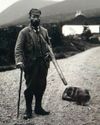
Stalking Diary
Stalkers can be a sentimental bunch, and they often carry a huge attachment to their hill

Gamekeeper
Alan Edwards believes unique, private experiences can help keepers become more competent and passionate custodians of the countryside